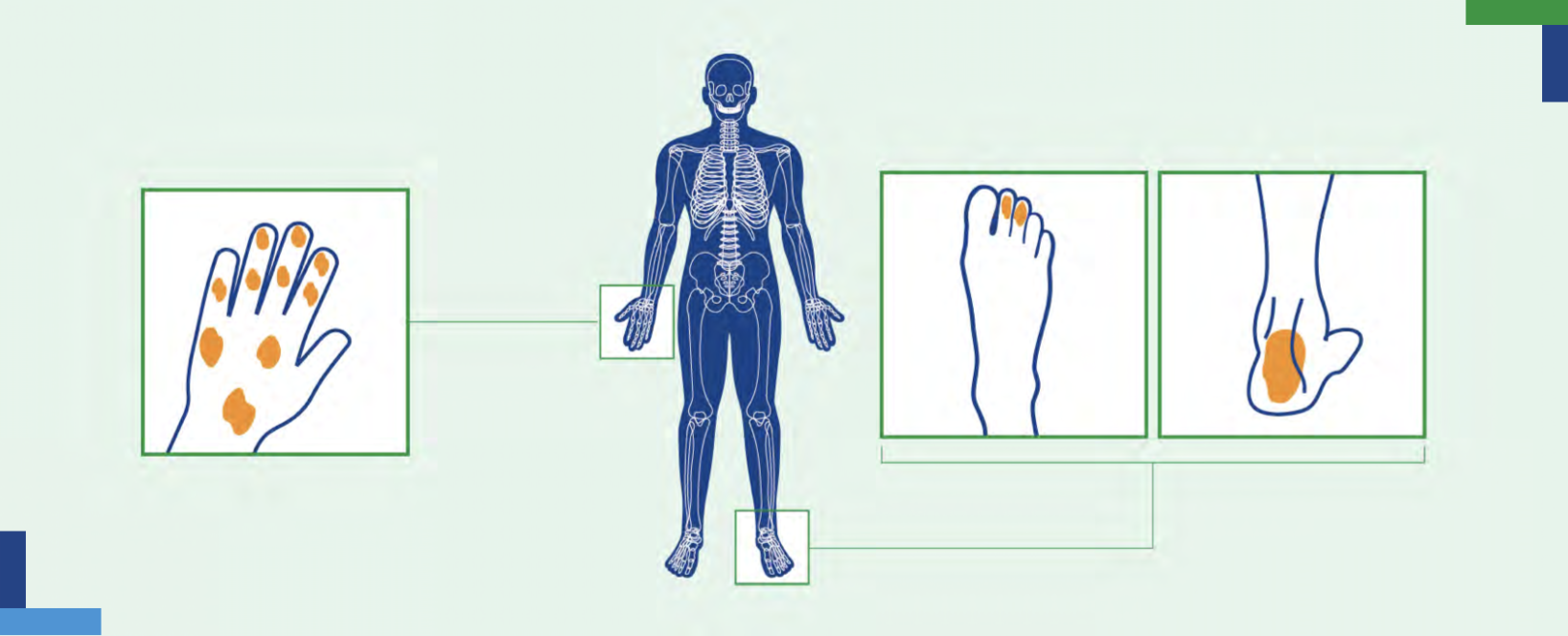What is psoriatic arthritis?
Psoriatic arthritis [pronounced sorr-eye-at-ick arth-rye-tis], also called PsA, is a chronic, or ongoing, immune-mediated (caused by the immune system*) inflammatory disease that affects the joints.1
In PsA, the body’s immune system attacks its own joints2
In people with PsA, the immune system targeting its own joints causes pain, swelling, fatigue and stiffness in the joints, which may restrict your movement and make it difficult to do simple things.1 PsA can affect many joints in the body or only a few – it’s different for everyone.2 People with PsA may also have skin psoriasis.3

How psoriatic arthritis affects the body4
About 85% of people with PsA also have skin psoriasis, but they don’t always develop at the same time5,6
*Neither PsA nor psoriasis (PsO) is contagious,2,7 but it can mean that you stand a greater risk of developing some other disease, such as diabetes, cardiovascular disease, inflammatory intestinal disease, auto-immune eye disease, fibromyalgia or depression.8
You maybe be interested in

Make every moment of the consultation really count.

Does psoriatic arthritis (PsA) always stay the same?

You’re not alone – there are other patients with psoriatic arthritis, just like you out there.
The immune system protects us from infection through various lines of defense. Autoimmune diseases occur when the immune system attacks the body it is meant to protect. Examples of these are rheumatoid arthritis, psoriasis, psoriatic arthritis and multiple sclerosis.2,9
References
- National Psoriasis Foundation. About psoriatic arthritis. Available at: https://www.psoriasis.org/about-psoriatic-arthritis. Accessed: November 2023.
Arthritis Foundation. Psoriatic arthritis. Available at: https://www.arthritis.org/diseases/psoriatic-arthritis. Accessed: November 2023.
Bagel J and Schwartzman S. Am J Clin Dermatol 2018;19:839-852.
WebMD. How does psoriatic arthritis affect your body? Available at: https://www.webmd.com/arthritis/psoriatic-arthritis/ss/slideshow-psoriatic-arthritis-body. Accessed: November 2023.
Healthline, Symptoms of Psoriatic Arthritis. https://www.healthline.com/health/psoriatic-arthritis-symptoms-pictures. Accessed:November 2023.
Ritchlin CT, et al. N Engl J Med 2017;376:957-970.
PAPAA. Psoriasis: a simple explanation. Available at: https://www.papaa.org/learn-about-psoriasis-and-psoriatic-arthritis/common-questions/psoriasis-a-simple-explanation. Accessed: November 2023.
Haddad A, et al. Rambam Maimonides Med J 2017;8(1:e0004): 1-6.
British Society of Immunology. What is immunology? Available at: https://www.immunology.org/public-information/what-is-immunology. Accessed: November 2023.
